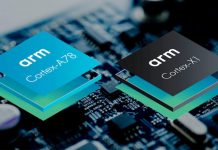
Tech billionaire Elon Musk and his brain-hacking firm Neuralink will be demonstrating a functional brain-to-machine interface, aimed at developing "superhuman cognition".
In a series of tweets, Elon Musk said Neuralink, which applied to begin human trials last year, will conduct a demonstration of its working brain-to-machine interface using a robot and "neurons firing in real time".
While the interface could help people with neurological conditions to control phones or computers with their mind, the long-term goal for the technology is to develop what Musk calls superhuman cognition.
He argued that humans need to merge with artificial intelligence, partly to avoid a scenario where artificial intelligence (AI) becomes so powerful it destroys the human race.
Neuralink’s interface
The tech firm, established in 2017, has been trying to attract scientists and Musk is still posting about it on Twitter until last month.
The device Neuralink is trying to develop is made up of a tiny probe containing more than 3,000 electrodes attached to flexible threads thinner than a human hair. It is capable of monitoring the activity of 1,000 brain neurons.
The last update the company released on the interface was more than a year ago, which stated that it had conducted tests on a monkey that had been able to control a computer with its brain. Neuralink also said it was able to build a "neurosurgical robot" that can insert 192 electrodes into the brain every minute.
Surprised with Musk’s revelation about the monkey on the update, Neuralink president Max Hodak laughingly said: "I didn't realize we were running that result today, but there it goes," to which Musk replied: "The monkey's going to come out of the bag."
Hurdles to the technology
According to Jennifer Collinger, assistant professor of physical medicine and rehabilitation at University of Pittsburgh, the device Musk and Neuralink is trying to create is "truly disruptive technology in a difficult space of medical technology".
Collinger said: "Neuralink has significant resources and critically a team of scientists, engineers and clinicians working towards a common goal, which gives them a great chance of success."
However, she pointed out: "Even with these resources, medical-device development takes time and safety needs to be a top priority, so I suspect the process may take longer than they have stated as their goals."
Meanwhile, Ari Benjamin of the University of Pennsylvania's Kording Lab claimed that the real hurdle for the technology could be the sheer complexity of the human brain.
Benjamin explained: "Once they have the recordings, Neuralink will need to decode them and will someday hit the barrier that is our lack of basic understanding of how the brain works, no matter how many neurons they record from.”
"Decoding goals and movement plans is hard when you don't understand the neural code in which those things are communicated," he added.
While Musk's other companies, SpaceX and Tesla, have attracted public interest with his attempts to spearhead development in spaceflight and electric vehicles respectively, both firms have historically demonstrated the billionaire’s penchant for making bold declarations about projects that end up taking much longer to complete than planned.






